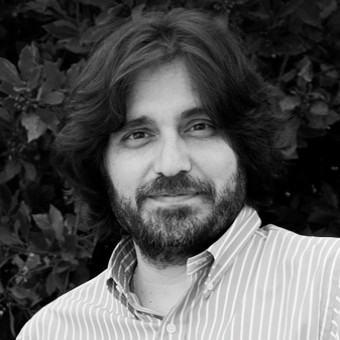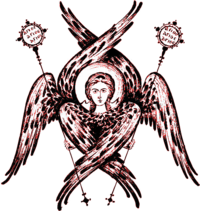Difference between revisions of "0"
m |
m |
||
| (407 intermediate revisions by the same user not shown) | |||
| Line 1: | Line 1: | ||
| − | + | {{epi-el|-82}} | |
| − | + | {| width="100%" | |
| + | | width="33%" valign="top" | | ||
| + | {{/x|yellow|{{:A/el}}|A/el}} | ||
| + | {{/x|darkblue|{{:2/el}}|2/el}} | ||
| + | {{/x|yellow|{{:B/el}}|B/el}} | ||
| + | | valign="top" | | ||
| + | {{/x|red|{{:1/el}}|1/el}} | ||
| + | {{/x|white|{{:E/el}}|E/el}} | ||
| + | {{/x|magenta|{{:3/el}}|3/el}} | ||
| + | | width="33%" valign="top" | | ||
| + | {{/x|yellow|{{:C/el}}|C/el}} | ||
| + | {{/x|green|{{:4/el}}|4/el}} | ||
| + | {{/x|yellow|{{:D/el}}|D/el}} | ||
| + | |} | ||
| + | [[File:serafim.png|200px|center|link=https://www.youtube.com/channel/UCAoPy8AvtF55dh9SBuevXAg]] | ||
| + | <p style="color:red;text-align-last:center;font-family:SERAFIM_PRODROMOS;font-size:20pt;letter-spacing:2px">ΑΝΑΠΤΥΞΙΣ ΡΩΜΑΝΟΥ ΑΡΙΣΤΟΤΕΛΗ</p> | ||
| − | <p | + | <p style="color:green;text-align-last:center;font-family:SERAFIM_PRODROMOS;font-size:20pt;letter-spacing:2px">ΤΑ ΚΛΑΣΣΙΚΑ ΕΡΓΑ ΤΗΣ ΜΟΥΣΙΚΗΣ ΕΛΕΥΘΕΡΩΣ</p> |
| − | + | ||
| − | + | <p style="color:blue;text-align-last:center;font-family:SERAFIM_PRODROMOS;font-size:20pt;letter-spacing:2px">ΤΑ ΚΕΙΜΕΝΑ ΑΠΑΙΤΟΥΣΙΝ ΑΝΑΦΟΡΑΝ</p> | |
| + | |||
| + | {| class="wikitable" | ||
| + | |- | ||
| + | | [[File:ARISTOTELIS_ROMANOS.jpg|400px|link=]] || | ||
| + | == Development — author of the idea == | ||
| + | <big>Romanos Aristotelis, from St. Petersburg, comes from a family of Greeks who emigrated to Russia in the late 18th century.</big> | ||
| + | |||
| + | |||
| + | <big>He graduated from the Faculty of Philology of St. Petersburg State University, specializing in Greek Language & Literature, IT Linguistics and Medieval Greek Paleography.</big> | ||
| + | |||
| + | |||
| + | <big>He has been working in the field of software engineering and computer linguistics in the IT company Etersoft.</big> | ||
| + | |||
| + | |||
| + | <big>From 2008 to 2019, he was in Greece on the Holy Mountain of Athos studying Greek medieval musical manuscripts and literature, the living mystical monastic chant tradition and ascetic spiritual monastic life.</big> | ||
| + | |||
| + | |||
| + | <big>In 2021 he enrolled at the University of Macedonia in Thessaloniki in the Department of Music to implement informative and therapeutic ideas in scientific research.</big> | ||
| + | |- | ||
| + | |[[File:Patronasphoto.jpg|400px|link=]] | ||
| + | | | ||
| + | == Professor — scientific supervisor of the project == | ||
| + | Dr. Georgios Patronas. | ||
| + | |||
| + | |||
| + | He is a music educator, Chanting Interpreter and Researcher. He teaches at the Department of Music Science and Art of the University of Macedonia (Greece-Thessaloniki) as a member of the SPD «Teaching in Byzantine music with emphasis on execution». He has completed undergraduate and postgraduate studies abroad in Music Education and Didactics in Piano and Ensemble. He completed his doctoral studies at the University of Macedonia in the direction of the Didactic Music. His postdoctoral research was: The Kekragaria of Jacob Protopsalt ― Interpretation and performance ― Didactic approach. He did additional special studies in «Theory of Music Learning and Teaching». He is the Chief musician of the Byzantine choir «Euromoundes», Protopsalt of the Church of St. Therapontos K. Toumbas of Thessaloniki, Artistic Director of St. Therapon’s Music Lab in Kato-Toumba and the Orchestra of Greek Music. | ||
| + | |} | ||
| + | |||
| + | |||
| + | |||
| + | |||
| + | {{#css: | ||
| + | h1#firstHeading { | ||
| + | margin-top: -14px !important; | ||
| + | padding-top: 20px !important; | ||
| + | line-height: 1.1em; | ||
| + | font-size: 22pt; | ||
| + | page-break-after: avoid; | ||
| + | padding-bottom: 10px !important; | ||
| + | text-align: left; | ||
| + | color: red; | ||
| + | margin-bottom: 57px !important; | ||
| + | } | ||
| + | #siteNotice { | ||
| + | position: absolute; | ||
| + | margin-top: 72px; | ||
| + | margin-left: -4px; | ||
| + | font-size: 0.7em; | ||
| + | display: block !important; | ||
| + | } | ||
| + | #contentSub, #contentSub2 { | ||
| + | display: none !important; | ||
| + | } | ||
| + | p.ccc:first-letter { font-weight: normal; color: red; | ||
| + | } | ||
| + | p.ccc { | ||
| + | text-align: center !important; | ||
| + | text-align-last: center !important; | ||
| + | font-size: 17pt !important; | ||
| + | letter-spacing: 0px !important; | ||
| + | padding: 5px 60px 36px 60px !important; | ||
| + | line-height: 1.5em !important; | ||
| + | font-weight: normal !important; | ||
| + | font-family: "sans" !important; | ||
| + | hyphens: manual !important; | ||
| + | } | ||
| + | }} | ||
| + | |||
| + | |||
| + | {{#css:MediaWiki:center.css}} {{#css:MediaWiki:go.css}} | ||
| + | <div id="gotop">[[#mw-head|⤴]]</div> | ||
| + | {{DISPLAYTITLE:Δεῦτε, ἀδελφοί!}} | ||
Latest revision as of 14:09, 25 October 2022
Ψάλλω, ἄρα ὑπάρχω
ΘΕΟΠΝΕΥΣΤΑ ΜΟΥΣΙΚΑ ΜΝΗΜΕΙΑ
|
ΟΥΡΑΝΙΟΝ ΑΣΜΑ Πάντες δι᾽ ὅσους ἡ Ψαλτικὴ εἶναι ὡς δευτέρα ἀναπνοή, μυστικὴ πνευματικὴ ἄθλησις, πηγὴ ἐμπνεύσεως, ὁδηγὸς πρὸς τὴν θεωρίαν καὶ φάρμακον τῆς ψυχῆς. Στὴν «πολιτεία» μας μένουν ὅσοι εἶναι βέβαιοι ὅτι κάθε μελῳδία ὡσὰν λόγος, ἐκφράζει μία πνευματικὴ ἔννοια. Ἐδὼ δημοσιεύονται τὰ θεόπνευστα μνημεῖα, τὰ αἰώνια καὶ ἀθάνατα μελουργήματα. Βόρεια χώρα Ἐν τῇ χώρᾳ ταύτῃ δημοσιεύονται καὶ συζητοῦνται μελῳδίαι καὶ ὕμνοι τῆς «Βορείου Πατερικῆς ὑμνῳδίας», παλαιᾶς σλαβικῆς ψαλτικῆς, βορείου δι᾽ ἤχου ἐνσαρκώσεως τοῦ οὐρανίου ἄσματος. ΜΟΥΣΙΚΗ ΣΥΜΠΑΝΤΟΣ Ἡ ἀρχαία ἑλληνικὴ μουσικὴ ἔμπνευση δὲν ἔπαυσε νὰ ἀνθίζει, συνεχίζει νὰ ζῇ στὴν θεωρία καὶ στὴν σημειογραφία τῆς σημερινῆς «βυζαντινῆς μουσικῆς», ποὺ κακῶς παραβλέπεται καὶ ὀνομάζεται «βυζαντινή», εἶναι παγκόσμια, ἐπειδὴ δὲν τυγχάνει μία ἁπλῆ ἐθνικὴ θεώρηση τῆς ἀνθρώπινης πολιτιστικῆς κληρονομίας, ἀλλὰ εἶναι μοναδικὴ ἔκφραση οὐρανίου, ἀγγελικοῦ ἄσματος, μία θεία μουσικὴ γλῶσσα, ποὺ μόνο αὐτὴ μιλᾷ τόσα βαθιὰ μὲ την ψυχὴ τοῦ ἀνθρώπου καὶ τὸν ὁδηγεῖ πρὸς πνευματικὴ τελειότητα.
|
Ἀνατολικὴ χώρα Ἐν τῇ χώρᾳ ταύτῃ ἐπιστημονικῶς δημοσιεύονται καὶ ἀναλύονται μελῳδίαι, ὕμνοι καὶ διδακτικαὶ μέθοδοι τῆς λεγομένης «ψαλτικῆς τέχνης» ἢ ἑτέροις λόγοις· «Ἀνατολικῆς Πατερικῆς ὑμνῳδίας», τῆς ἀνατολικῆς δι᾽ ἤχου ἐνσαρκώσεως τοῦ οὐρανίου ἄσματος.
Ψηφιακὴ καταγραφὴ τῶν μὲν παραδοσιακῶν σημειογραφιῶν ἐν ταῖς ἡμῶν ἱστοσελίσι γίνεται διὰ τοῦ συστήματος ΕΥΔΡΟΜΟΥΝΤΕΣ (Serafim Unicode), τῶν δὲ εὐρωπαϊκῶν πολυγράμμων σημειογραφιῶν διὰ τῆς mediawiki-ἐπεκτάσεως Score τοῦ συστήματος Lilypond. 𝝙𝝙𝁇𝂅𝂅𝝾 𝁇𝁜𝝾 𝁑𝁿𝝾 𝁇𝁿𝝾 𝁕𝁿𝝽𝝰 𝁇𝃰𝂏𝝥𝝰 𝁑𝝰 𝁇𝁿𝞃𝞀𝝸 𝁇𝃰𝁚𝝸 𝁑𝝹𝝰𝝸 𝁑𝝰𝝸 𝁑𝝪𝝸 𝃰𝞄𝝸 𝁇𝁿𝁛𝟂 𝁑𝁿𝟂 𝂪 𝁆𝁿𝁚𝝹𝝰𝝸 𝁑𝁿𝝖𝁑𝂅𝂅𝝲𝝸 𝁇𝃲𝝸 𝁇𝝸 𝁉𝟂 𝁑𝟂 𝁇𝃰𝝥𝝼𝝴 𝁆𝁿𝁚𝝴𝞄 𝁑𝁿𝝻𝝰 𝁑𝁿𝝰 𝁑𝁿𝝰 𝁇𝂏𝝰 𝁑𝁜𝂅𝝰 𝁑𝂏𝝰 𝁇𝁚𝂴𝝰 𝁑𝝰 𝁑𝁿𝝰 𝁆𝂅𝂅𝞃𝝸𝂳 Δυτικὴ χώρα Ἐν τῇ χώρᾳ ταύτῃ δημοσιεύονται καὶ συζητοῦνται μελῳδίαι καὶ ὕμνοι τοῦ «Γρηγοριανοῦ» καὶ «Ἀμβροσιανοῦ» μέλους· «Δυτικὴ Πατερικὴ ὑμνῳδία», ἀρχαία ῥωμαϊκή, παλαιὰ λατινικὴ ψαλτική, ἡ δυτικὴ δι᾽ ἤχου ἐνσάρκωσις τοῦ οὐρανίου ἄσματος. |
ΜΕΛῼΔΙΚΗ ΘΕΡΑΠΕΙΑ Οἱ ἔννοιες ποὺ ἐνσαρκώνονται διὰ μέσου τοῦ ἤχου δύνανται νὰ ἔχουν θεραπευτικὴ δύναμη. Ἡ μουσικὴ ποὺ μπορεῖ νὰ λειτουργῇ διὰ θεραπευτικοὺς λόγους καὶ ὄχι μόνο διὰ διασκέδαση ἢ εὐχαρίστηση τῶν αἰσθήσεων καὶ τοῦ νοὸς εἶναι ἀποκλειστικὰ τὸ ἀρχαῖον μέλος, ποὺ εἶναι ἄνωθεν ἐμπνευσμένο καὶ εἰδικῶς δημιουργεῖτο μὲ αὐτὴ τὴν φιλοσοφία. Νότια χώρα Ἐν τῇ χώρᾳ ταύτῃ δημοσιεύονται καὶ συζητοῦνται πᾶσαι μελῳδίαι καὶ ὕμνοι οἱ παραλειφθῆσαι μὲν ἐν ἑτέραις χώραις, τὰ ὑποψήφια μέλη διὰ τὸ τίμιον ὄνομα τῆς δι᾽ ἤχου ἀπεικονήσεως τοῦ οὐρανίου ἄσματος. ΕΜΜΕΛΗΣ ΠΑΙΔΑΓΩΓΙΚΗ Μετὰ τὴν «μουσικὴ σύμπαντος» στὴν ἱεραρχία ἀκολουθεῖ κατὰ τοὺς πυθαγορικοὺς ἡ «ἀνθρωπίνη μουσική», διότι στὴν ἀνθρωπίνη φύση ἐπίσης ὑπόκειται ἁρμονία, ποὺ ἀπεικονίζει τὴν ἰσοῤῥοπία τῶν ἀντιθέτων ζωτικῶν δυνάμεων. Ἡ ἁρμονία εἶναι ὑγεία, ἑνῶ ἡ ἀῤῥώστια εἶναι δυσαρμονία καὶ ἔλλειψη συμφωνίας. Γι᾽αὐτὸ ὁ Πυθαγόρας θεωροῦσε τὴν μουσικὴ ὡς ἀναφαίρετη οὐσία τῆς ὑγείας καὶ τῆς ζωῆς τοῦ ἀνθρώπου. Ὁ μέγας Ἰάμβλιχος, ὁ ἀπόγονος τοῦ Πυθαγόρα, μᾶς ἀναφέρει: «Ὁ Πυθαγόρας ὅρισε τὴν παιδαγωγία διὰ μουσικῆς, ἐξ ἧς προέρχεται ἡ θεραπεία τῶν ἀνθρωπίνων ἠθῶν». |
ΑΝΑΠΤΥΞΙΣ ΡΩΜΑΝΟΥ ΑΡΙΣΤΟΤΕΛΗ
ΤΑ ΚΛΑΣΣΙΚΑ ΕΡΓΑ ΤΗΣ ΜΟΥΣΙΚΗΣ ΕΛΕΥΘΕΡΩΣ
ΤΑ ΚΕΙΜΕΝΑ ΑΠΑΙΤΟΥΣΙΝ ΑΝΑΦΟΡΑΝ
 |
Development — author of the ideaRomanos Aristotelis, from St. Petersburg, comes from a family of Greeks who emigrated to Russia in the late 18th century.
|

|
Professor — scientific supervisor of the projectDr. Georgios Patronas.
|
